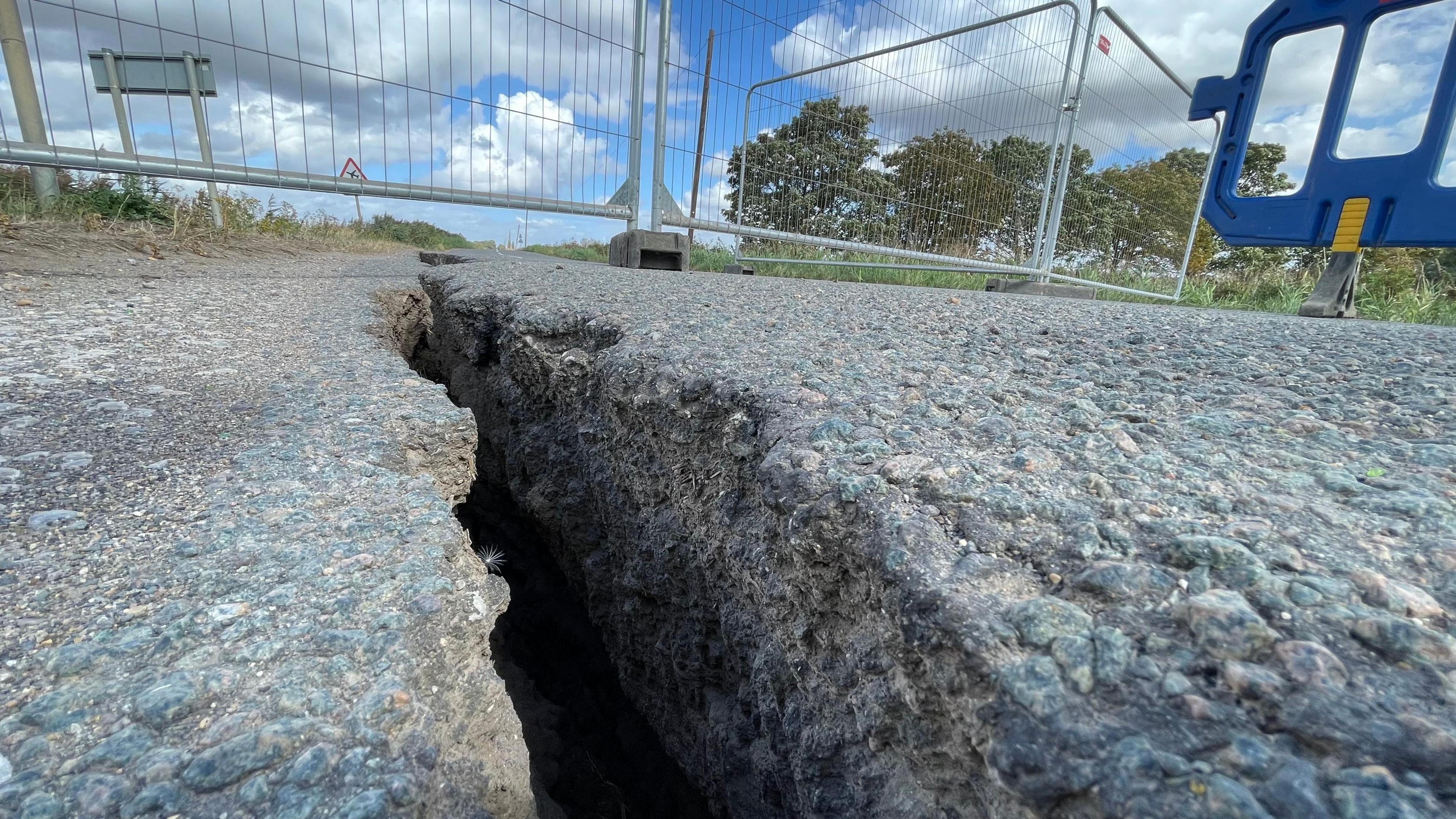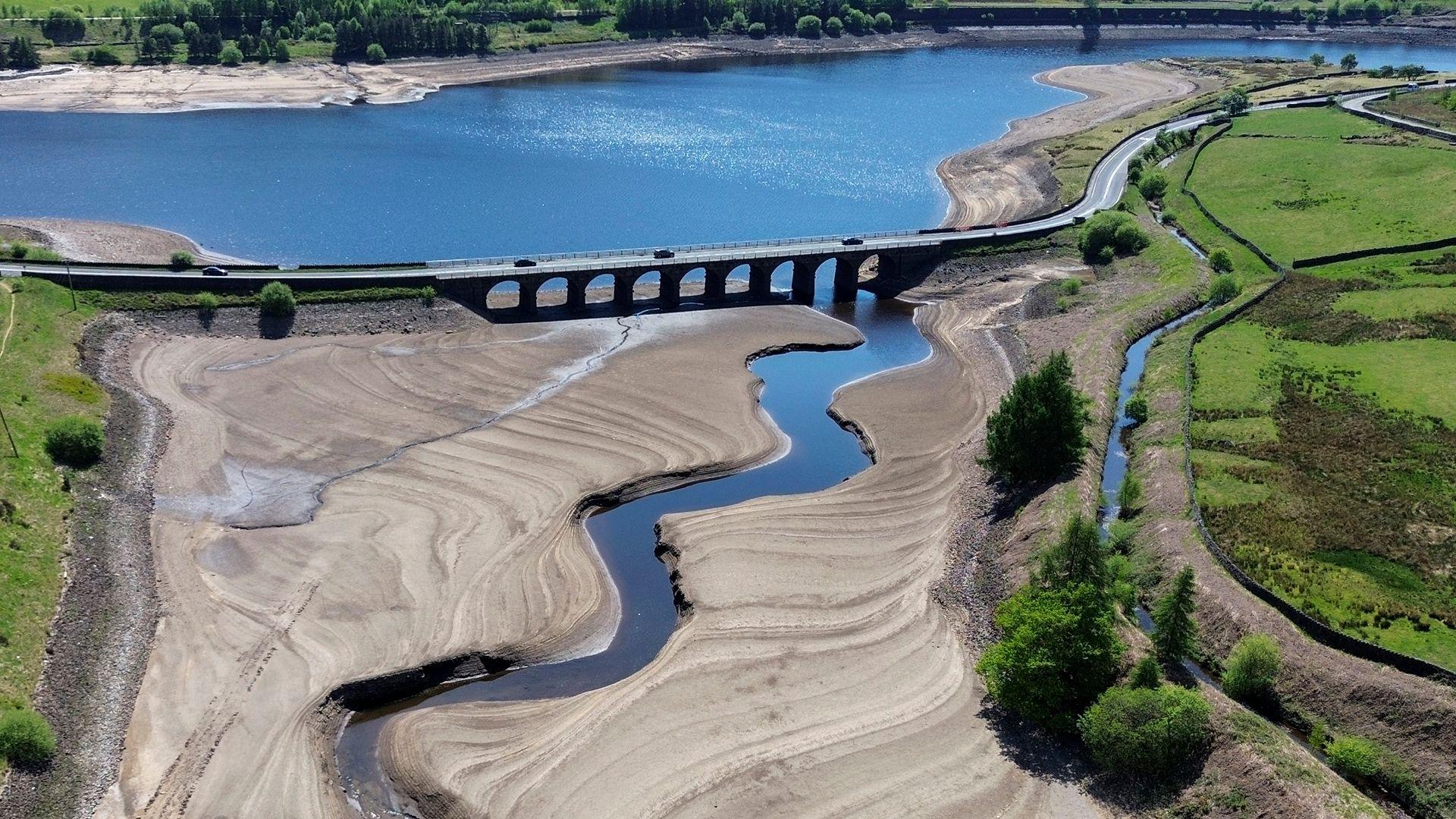Farmer's harvest saved by private reservoir
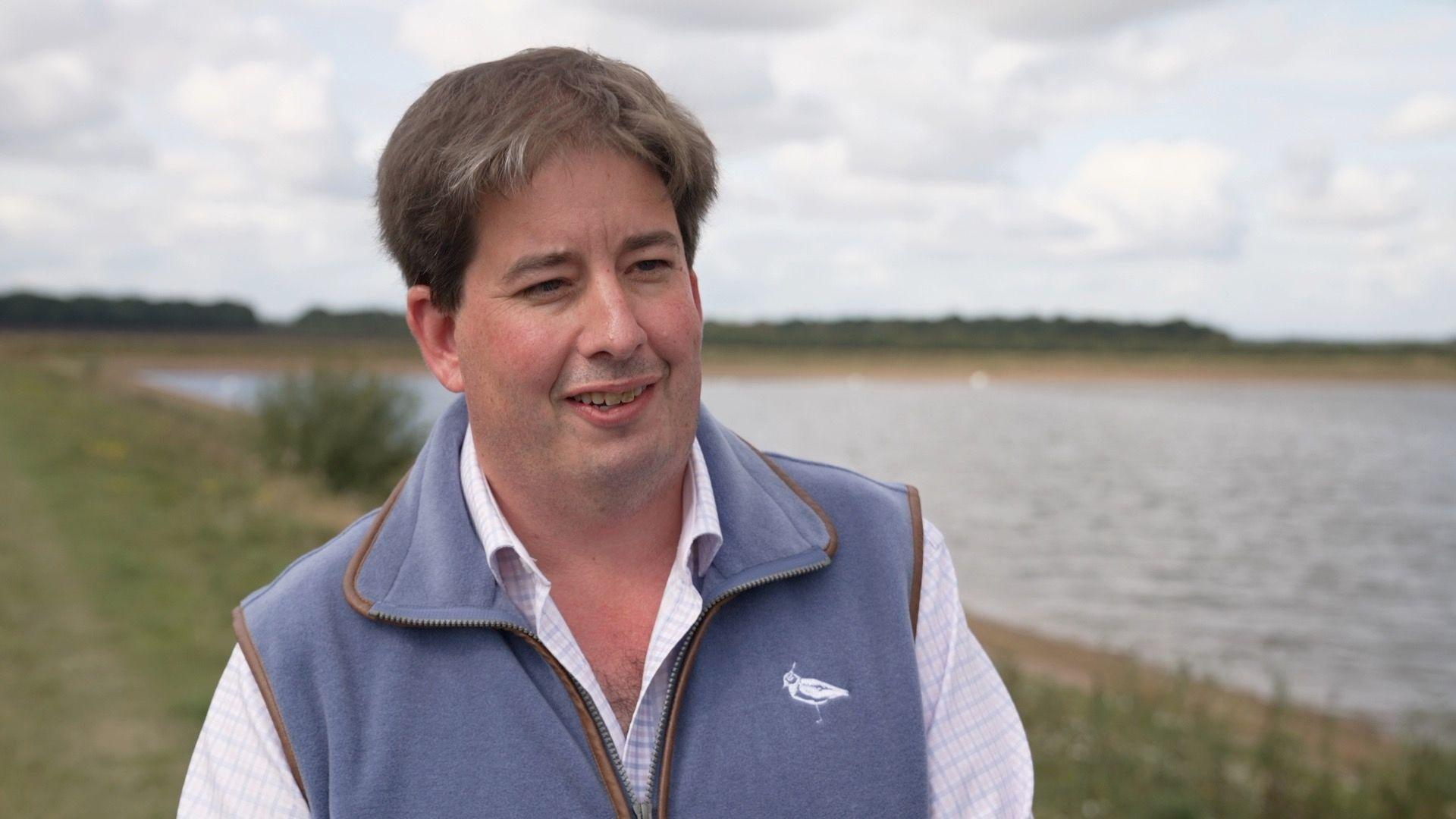
James Brown says his vegetable crops were saved by his own private reservoir
- Published
James Brown and Robert Caudwell are two farmers with very different tales to tell about this year's harvest.
One is celebrating a bumper crop of broccoli and a flurry of orders, while the other is counting the cost of a shrivelled crop of 160,000 cauliflowers that has left gaps in the supermarket shelves.
Both have decades of experience, high tech machinery and are planting in Lincolnshire's fertile land. So why the difference? Drought – and their access to water.
The lush green fields belonging to Mr Brown stand out amid the crisp and dry landscape of Lincolnshire.
His organic farm near Gainsborough is home to a private reservoir. At 10 acres (40,000 sq m), it covers the area of approximately seven football pitches and holds almost 140m litres (30m gallons) of water.
"We don't have a water shortage in the UK," said Mr Brown. "We have a water management problem."
The reservoir was built in 2012, but 2025 has been the year they have needed it most, he said.
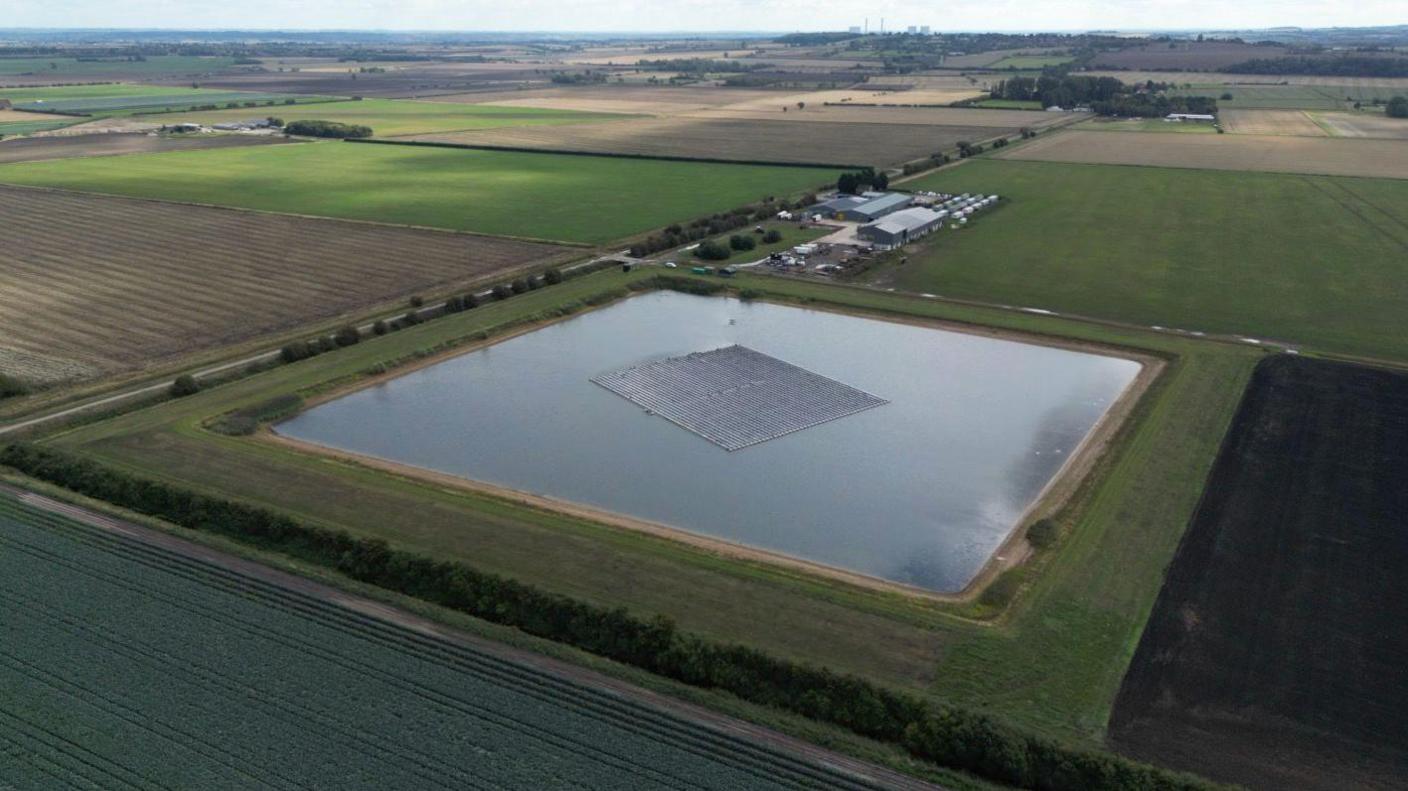
James Brown's reservoir is filled with flood water taken from local rivers last winter
Anglian Water said 2025 had been the driest summer since 1976.
"Without this water our vegetables simply would not have grown," said Mr Brown.
The combination of intense sunshine and an abundant water supply means they have harvested 15% more broccoli and cabbages this year. In the pack house, staff are busier than ever.
The reservoir and floating solar panels that power the irrigation pump cost approximately £1.5m.
Mr Brown received help in the form of grants from the EU.
However, these are no longer available to British farmers following Brexit.
Farmers would be willing to build their own reservoirs if there was a way to recoup the huge financial investment, Mr Brown said, adding: "If we were allowed to sell water to other users, farmers would be willing to make more investments like this, in order to help that wider shortage."
He said current rules were "incredibly complicated" and did not allow him to sell the water from his reservoir because it was topped up during the winter with water from a flooded river.
The Environment Agency said it encouraged farmers to "explore the options available to improve water supply resilience."
Farmers being able to harvest and sell water is something the Association of Drainage Boards supports.
"This is holding us back," said chairman Mr Caudwell. "We are in discussion with ministers about this."
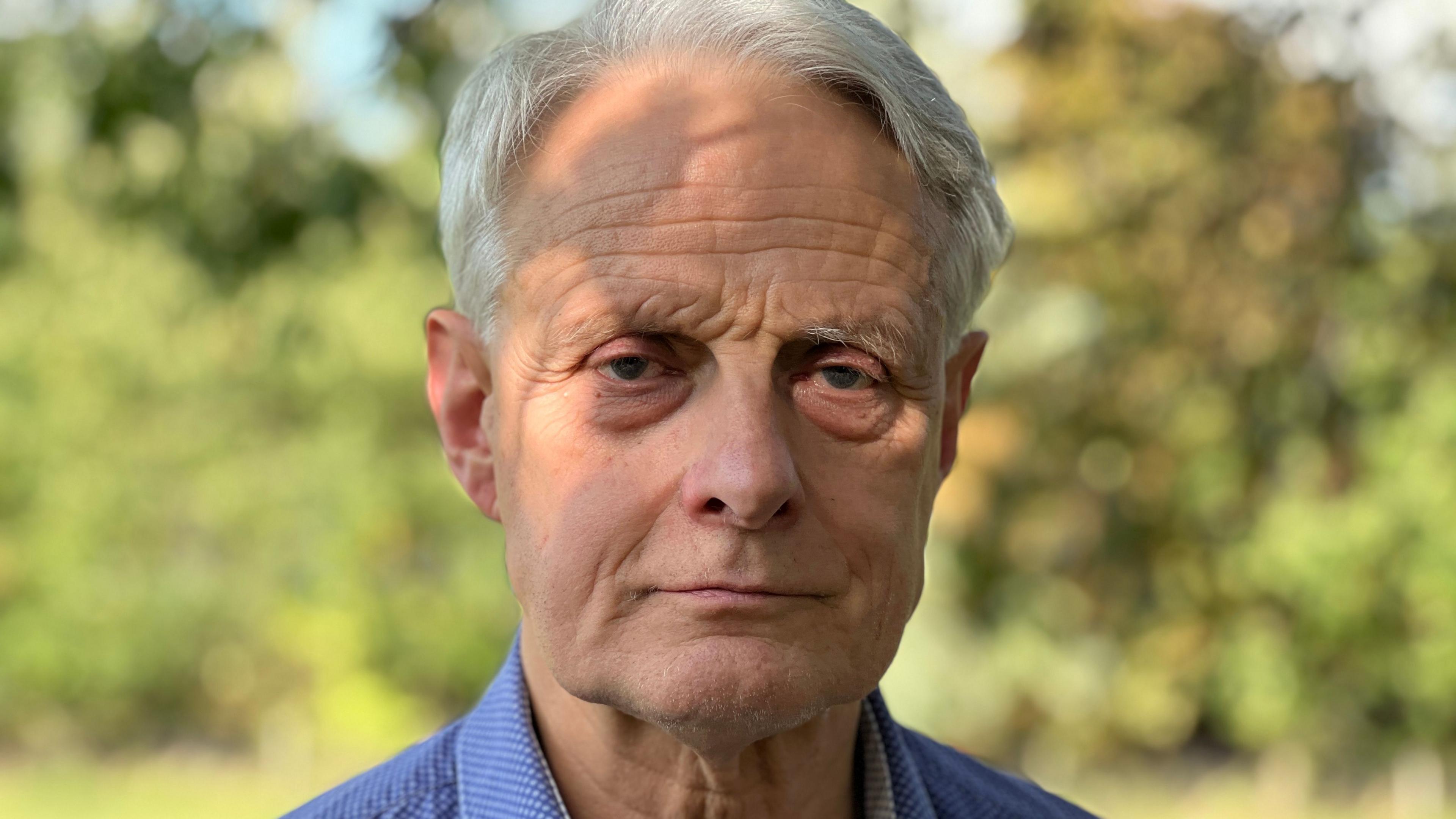
Robert Caudwell says current rules on farm reservoirs are hindering the UK's water management
Mr Caudwell has travelled extensively to farms in Italy, Spain and Portugal, where farmers deal with drier climates.
"They still manage to grow because they value water as a resource. That's the big difference."
Mr Caudwell said British farmers treated flood water as "waste to be got rid off", while Spanish and Italian growers considered it "a resource to be captured for drier times to come."
Mr Caudwell has this month lost a field of 160,000 cauliflowers through drought.
On his family farm near Boston, a flock of sheep are currently grazing on the remnants of the crop which was earmarked for UK supermarkets.
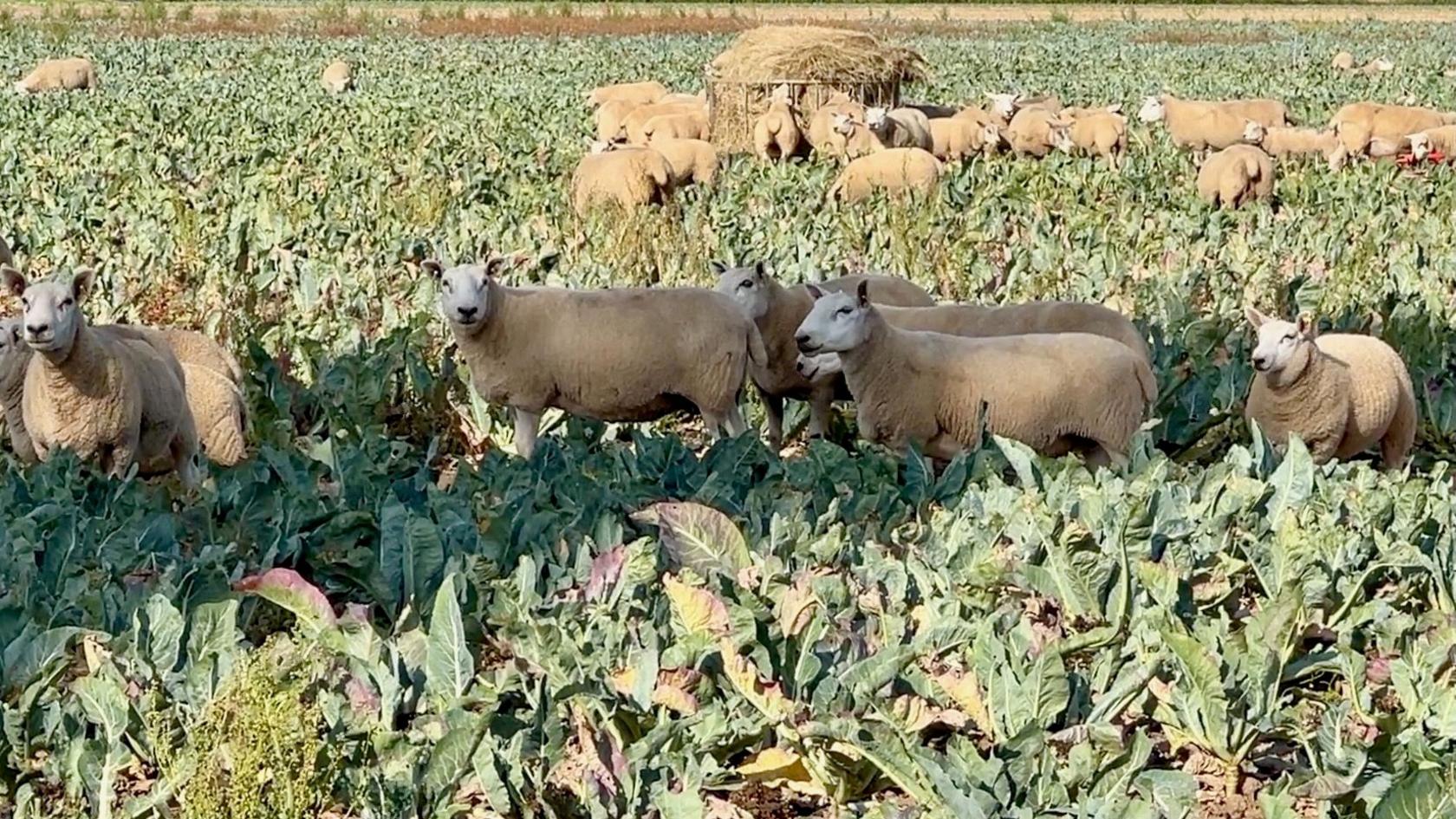
Sheep are grazing among the 160,000 cauliflowers that failed to grow to supermarket standards
He said it had cost his family tens of thousands of pounds.
"It's the drought that has caused this problem, rather than anything else," said Mr Caudwell.
He warned a failure to act could mean "real restrictions" on public water supplies in the future, which go beyond a hosepipe ban.
"We need to act now", said Mr Caudwell. "We are not short of water, we just need to manage it better."
Listen to highlights from Lincolnshire on BBC Sounds, watch the latest episode of Look North or tell us about a story you think we should be covering here, external.
Download the BBC News app from the App Store, external for iPhone and iPad or Google Play, external for Android devices
Related topics
- Published19 July
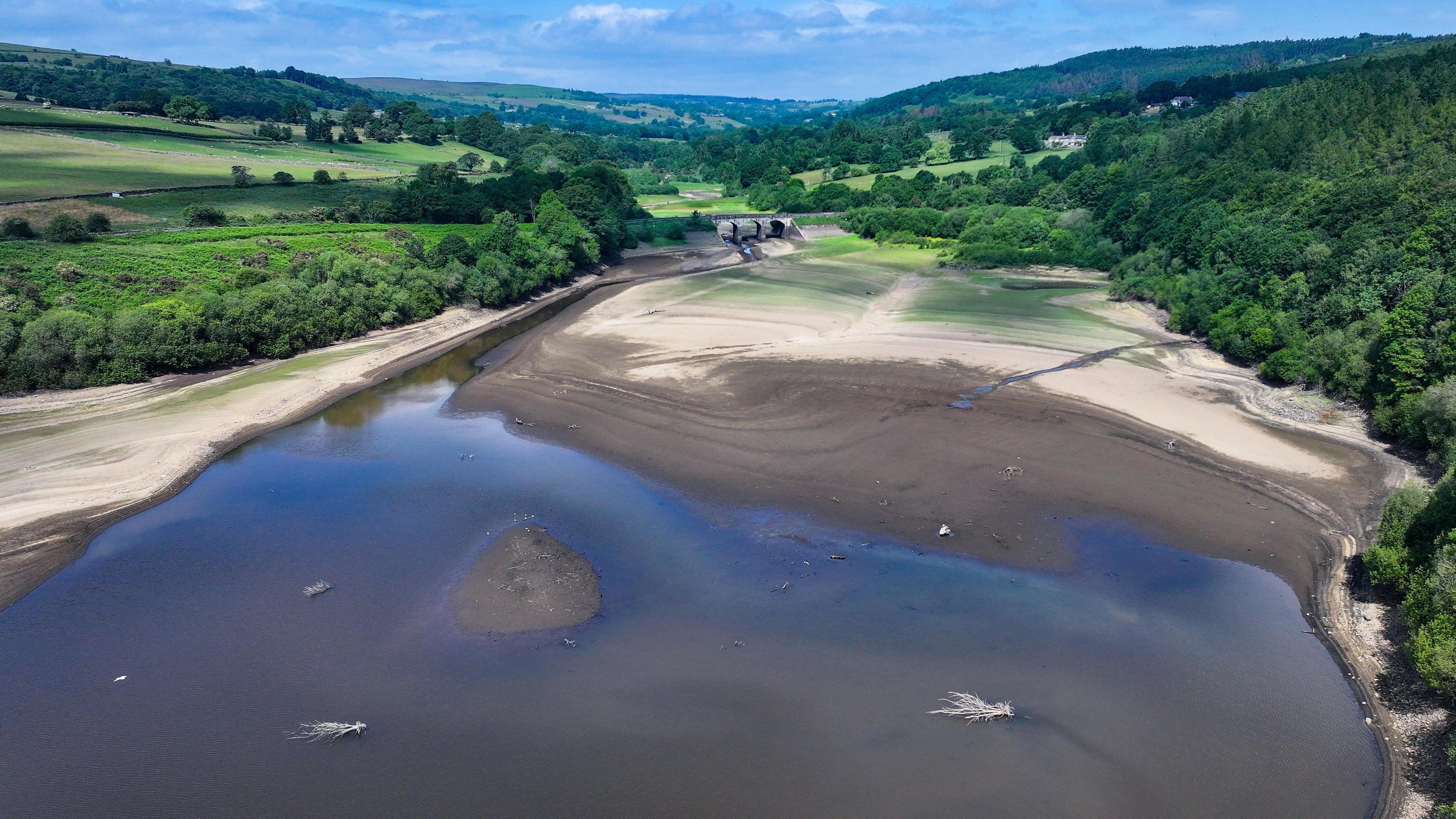
- Published5 September
